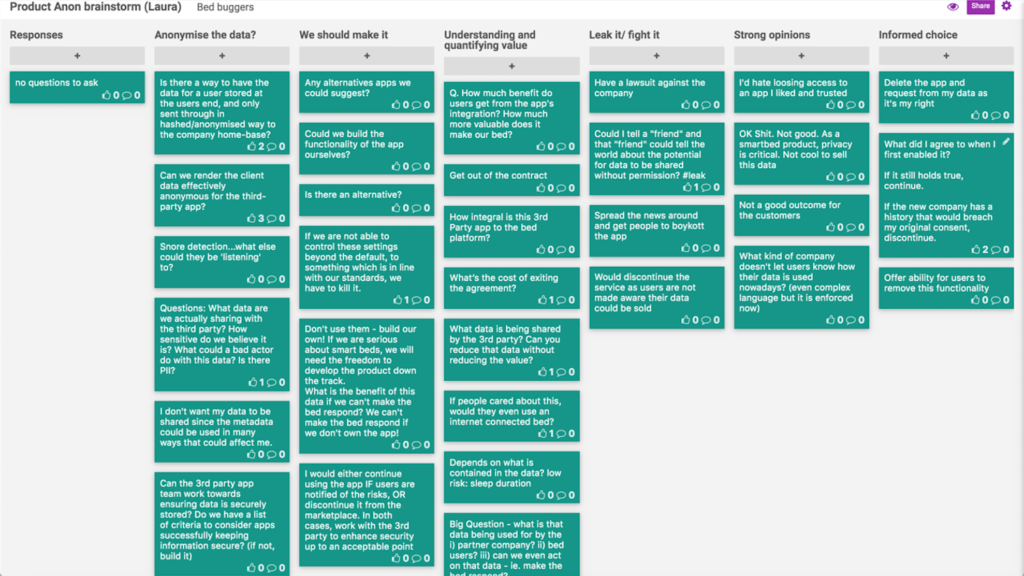
In recent years, the harm caused by technology has come under greater scrutiny. Whether at an individual product level, or the ecosystem created by a combination of products.
- How can we anticipate and mitigate against harm?
- Bring an ethical lens into the product design process?
- And map the potential bias in the systems we create.
If you’re struggling to find an answer, you’re probably not alone.
After numerous years working in tech companies and startups, Laura Summers identified a lack of tools to facilitate ethics conversations. This led Laura to found Debias.AI, and create Ethical Litmus Tests – a deck of cards with prompts and questions to help reframe a scenario, and apply different lenses during the design process.
We were fortunate to have Laura join our May session, and using the Litmus Tests, take us through an interactive exploration of ethics in product design.
Why is it so important?
Making trade-offs is part of designing and building products. But have you ever deeply considered what the impact of those options could be? Do you justify the decisions with yourselves, for the net (or greater) good?
But would you feel comfortable explaining your choices to a close younger relative?
Or what if the user was your elderly grandparent?
By applying these types of lenses, would you change the way you approach these decisions?
How does the Ethics Litmus Test work?
Define the motivator or driver
Describe the problem or scenario. The motivating concern can be either broad (eg, I’ve got a niggling feeling about this outcome), or very specific (eg, what if data was misused).
Pick a litmus card at randOM
Select a card to help you reframe your view.


Write down your responses individually
With the litmus card in mind, spend a couple of minutes to consider:
- Opinion: your position to the scenario
- Questions: if you need to know more information
- Next steps: action items
Share your responses
- Compare and contrast your responses.
- Are you surprised?
- Explain your thinking.
Some alternative activities to share your thoughts and responses:
- The Blind Advocate – pass your response to another participant, and take turns to argue for another person’s opinion. A true exercise in empathy!
- The Brainstorm – good for bigger groups, share your thoughts on post-its, or a digital retro board (like FunRetro), and then you can sort the responses into themes.


In this session, we all had some practice and fun, as Laura ran through several interactive scenarios with the Litmus Tests. Using the breakout rooms, we were able to discuss each scenario in small & bigger groups.

Resources and Further Reading
- Find out more about Ethical Litmus Tests on the website;
- Ethics Litmus Tests were inspired by
- The Good Place on Netflix
- Atomic Habits by James Clear;
- Oblique Strategies by Brian Eno
- Try Fun Retro to facilitate Ethics Litmus Tests activities remotely.
Read more about Laura and her work:
Thank you to our host: A Cloud Guru
Thank you to A Cloud Guru for hosting us online again this month. A Cloud Guru’s mission is to teach the world to cloud. We’re hiring!

